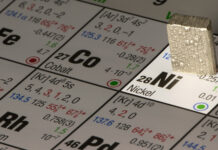
[miningmx.com] — CHINESE and Japanese copper smelters remain locked in talks over copper treatment and refining charges (TC/RCs) with BHP Billiton, after agreeing a 38% cut with Freeport-McMoRan Copper & Gold.
BHP is expected to take a tougher stance on the fees – the main source of revenue for smelters – and seek a 43% cut, but with margins already squeezed by soft physical premiums and low prices for by-products such as sulphuric acid, smelters will likely resist.
Japanese smelters Sumitomo Metal Mining and Pan Pacific, a joint venture between Mitsui Mining and Smelting and Nippon Mining Holdings, said a deal had been signed with Freeport.
Sumitomo confirmed the fees at $46.50 a tonne and 4.65 cents a pound, down from $75/7.5 cents set for 2009.
“We consider this a benchmark and will try to see that the same fee is applied to all other TC/RCs for 2010,” a Japanese smelter source said, referring to the Freeport deal.
A BHP spokeswoman declined to comment, but a trading company source in Australia said BHP negotiators were on orders to play “extra hardball” in this year’s negotiations.
“It is determined to get its best price, particularly given the production losses going on at Olympic Dam,” the source said.
Mining was cut to only about 25% of capacity at the world’s fourth largest copper deposit in October when a haulage car derailed in the mine’s main shaft. It will be the first quarter of 2010 before the mine resumes full operations, according to BHP.
Olympic Dam smelts all the concentrate it produces on site This means BHP is probably buying in concentrate for the smelter, something it has never done before, thus adding to the concentrate supply pinch.
Divided China
Tongling Nonferrous, China’s second-largest copper producer, also signed 2010 copper processing fees at the same $46.50 per tonne and 4.65 cents per pound with Freeport, a trade executive said on Thursday.
But others were yet to settle and chided the Tongling deal.
“We regret seeing these (treatment and refining charges). It is difficult for us to accept them,” said Gan Chengjiu, chief financial officer and the decision-maker for TC/RCs at Jiangxi Copper Co, the biggest copper smelter in China.
Jiangxi Copper, still in negotiations with Freeport and BHP, has not talked to the two miners on 2010 fees this week, Gan said.
“For now, we have not decided whether or not to accept that TC/RCs level… We want to continue talks with miners if they want to talk to us.”
The deals settled so far are in the bottom half of a range between the $60 a tonne to convert concentrate into copper anode and 6 cents a pound to refine anode into cathode that smelters had sought, and the initial $40/4 cents offer from miners.
The low fees show the imbalance between concentrate supply and smelter capacity and may lead to some smelter closures, an industry watcher said.
“This is a massive price adjustment and it puts more pressure on margins for everyone else. It’s a possibility that some smelters will shut down – the options are to run at a loss or turn off the furnaces,” Jonathan Barratt, managing director of Commodity Broking Services in Sydney, said.
“But smelters will survive because they have to. Most will keep going and go to the government for some money if they need it. The industry is too important for the country and Beijing doesn’t want rely too heavily on foreign cathode.”
Treatment and refining charges are fees paid by miner to smelters to convert imported concentrates into refined copper, and are deducted from the sale prices, based on London Metal Exchange copper prices










